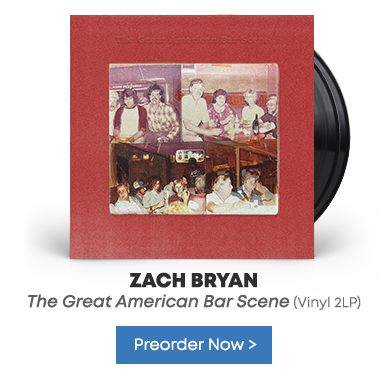Blood on the Tracks, one of Bob Dylan's most celebrated works, receives the deep-dive treatment this week with the release of More Blood, More Tracks: The Bootleg Series Vol. 14. Often perceived, perhaps simplistically, as a break-up record, the 1975 album arrived during a tumultuous time in Dylan's life, as it was written largely in the aftermath of a divorce. Just how autobiographical it remains is a matter of debate, but the songs certainly possess a love-focused passion often absent from Dylan's other recorded works. A deluxe, limited-edition set, which includes a total of 87 tracks, presents many an outtake and alternate cut, illustrating the seemingly limitless malleability of Dylan's fare. No doubt many could write essays or books parsing the meaning of any number of these songs. We'll keep it brief by highlighting five tunes that make Blood on the Tracks an essential album.
"Tangled Up in Blue"
Dylan songs evolve. Melodies shape-shift, lyrics come and go, and the version of "Tangled Up in Blue" on Blood on the Tracks can differ greatly from any number of Dylan concerts or live albums. While the variation can frustrate some fans, the fact "Tangled Up in Blue" feels alive is relatively fitting, for it concerns a relationship – or perhaps multiple relationships – from several points of view and seemingly different eras. Dylan, of course, is a never a reliable narrator if one is looking for autobiographical truths. That said, a short story unfolds in each of the verses: the awkward encounter with a former lover in a topless bar, the short-lived affair with a married woman, the parents who dismiss a potential relationship. The song's free-flowing feel and sonnet-like quality aid its timelessness. Decades and tastes may change, but simple, evocative lines – "All the people we used to know/They're an illusion to me now" – confirm why Dylan is a poet laureate.
"You're a Big Girl Now"
Dylan scholars often pair "You're a Big Girl Now" with Blonde on Blonde's "Just Like a Woman," noting the two share a few lyrical themes, namely the use of rain as a metaphor. Maybe, and the two songs certainly provide a stark contrast, seeing "Just Like a Woman" relates to a man in control and "You're a Big Now" presents us with a man losing his grip on any sort of power. But that's about it as far as similarities go. What makes "You're a Big Girl Now" so striking is its emotional nakedness. Forget about any obtrusiveness. The narrator clearly has a broken heart, and Dylan brilliantly captures little moments of anxiety. "Our conversation was short and sweet," Dylan sings in the song's opening, noting "it nearly swept me off my feet." But this isn't a tale of love at first sight. Rather, the narrator revisits something lost, while the romantic piano accompaniment proves built for a reflection.
"Idiot Wind"
"Someone's got it in for me, they're planting stories in the press," Dylan sings at the beginning of "Idiot Wind," one of the more vicious albeit paranoid opening lines in pop history. The level of disgust increases as the song unfolds. Check out the way Dylan delivers the words "sweet lady" at the end of the second verse, phrasing the lines with drawn-out venom as if he's spitting on the pavement and then waving as he walks away. Despite the personal attacks, "Idiot Wind" carries an air of social commentary. Mistrust is everywhere, with the press, with those Dylan knows or once knew, and with those in any sort of power (their "minds are filled with big ideas, images and distorted facts"). Vocally, Dylan sounds aggressive, and the piano and guitars march forward, with everything carrying an underling warning to listeners to be careful with what you hear.
"Shelter from the Storm"
If "Tangled Up in Blue" can be read as a series of snapshot-like vignettes, "Shelter from the Storm" takes on a broader, epic-like scope. Rather than present close-ups of relationships in peril, Dylan tackles love and lust in biblical terms, reflecting on how relationships can overtake one's life and make us feel powerless. This is a "world of steel-eyed death and men who are fighting to be warm," in which the narrator chases elusive beauty ("someday I'll make it mine"). Throughout the song, images of darkness, poison, and hunted reptiles appear, creating a harsh environment where the only "shelter" stems from the nebulous nature of love. The rambling, wide-open strumming of the song implies a lifelong journey devoid of any shortcuts.
"Buckets of Rain"
At first glance, "Buckets of Rain" stands apart from the rest of Blood on the Tracks. Arriving at the end of the record, the blues song, tuned to sound oddly bright, feels like a relief from the album's overarching emotional torment. "If you want me, honey baby I'll be here," Dylan sings in the second verse, a pledge of devotion that comes off relatively earnest in comparison to the preceding numbers. Of course, little with Dylan is as simple as it seems. Many students of the artist have pointed out "Buckets of Rain" largely borrows a melody from the Tom Paxton folk song "Bottle of Wine," a love letter from an alcoholic to his drink of choice. "Buckets of Rain" also functions as an addict's song, a tale of someone who survived the cruel hangover of a busted romance and tries for love again. As Dylan sings in the final verse, "Life is sad/Life is a bust/All you can do is do what you must." The narrator, then, remains helpless in the face of the drug that controls him.
2nd Nov 2018




































